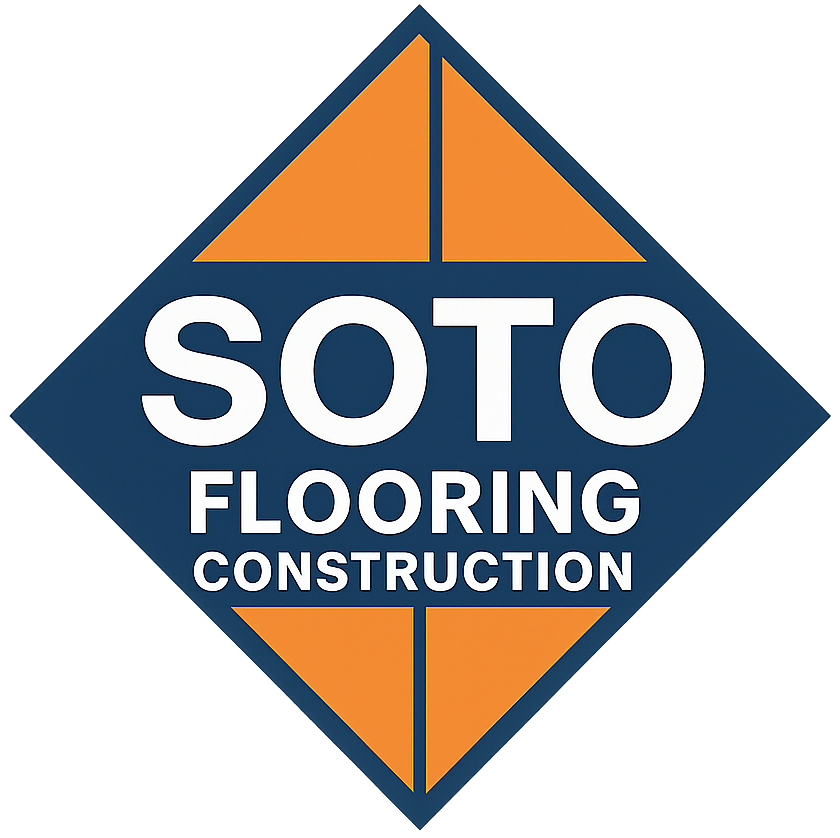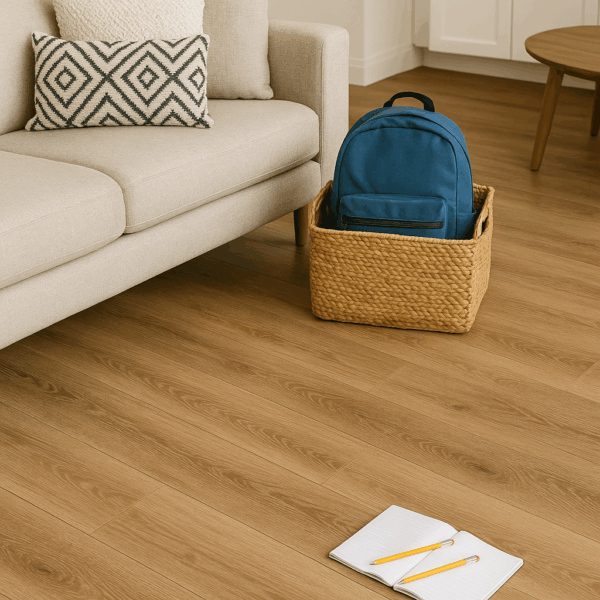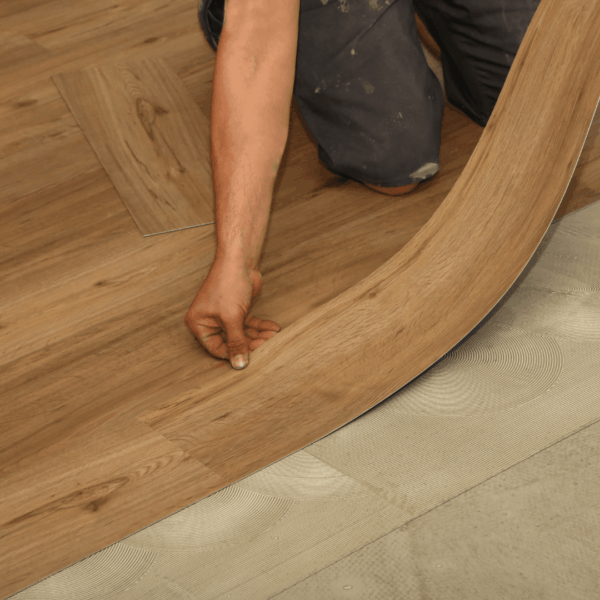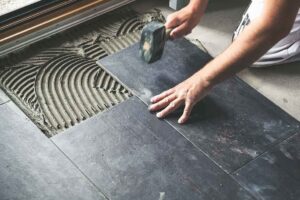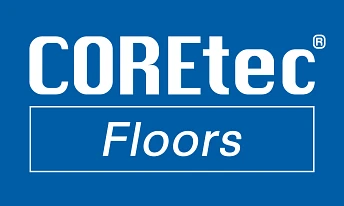
Hardwood Flooring Cost Breakdown
When planning a hardwood flooring project, knowing the costs helps with budgeting. Each part, like materials and labor, adds to the total cost.
Here’s a simple cost overview per square foot:
| Size by Square Feet | Low-End Estimate | Average Cost | High-End Estimate |
|---|---|---|---|
| 500 | $3,000 | $7,750 | $11,500 |
| 1,000 | $6,000 | $14,500 | $23,000 |
| 1,500 | $9,000 | $21,750 | $34,500 |
| 2,000 | $12,000 | $29,000 | $46,000 |
| 2,500 | $15,000 | $36,250 | $57,500 |
| 3,000 | $18,000 | $43,500 | $69,000 |
Materials: $4 to $12 per square foot
The kind and quality of hardwood affect the total cost of the project. You can choose from common woods like oak and maple or special ones like Brazilian cherry and teak. Each kind has different features and prices.
Domestic Hardwood
Domestic hardwoods like oak, maple, and hickory are easy to find and usually cost $4 to $8 per square foot. They are strong and versatile, making them popular with homeowners.
Exotic Hardwood
Exotic hardwoods such as Brazilian cherry, teak, and mahogany are known for their unique grain patterns and rich colors. They cost more, about $8 to $12 per square foot, but many people love their special look.
| Hardwood Species | Average Cost per Square Foot (Materials Only) | Average Total Cost per Square Foot (Including Installation) |
|---|---|---|
| Oak | $4 – $8 | $8 – $15 |
| Maple | $5 – $9 | $9 – $16 |
| Hickory | $6 – $10 | $10 – $17 |
| Cherry | $7 – $11 | $11 – $18 |
| Walnut | $8 – $12 | $12 – $19 |
| Ash | $6 – $10 | $10 – $17 |
| Birch | $5 – $9 | $9 – $16 |
| Teak | $9 – $13 | $13 – $20 |
| Mahogany | $10 – $14 | $14 – $21 |
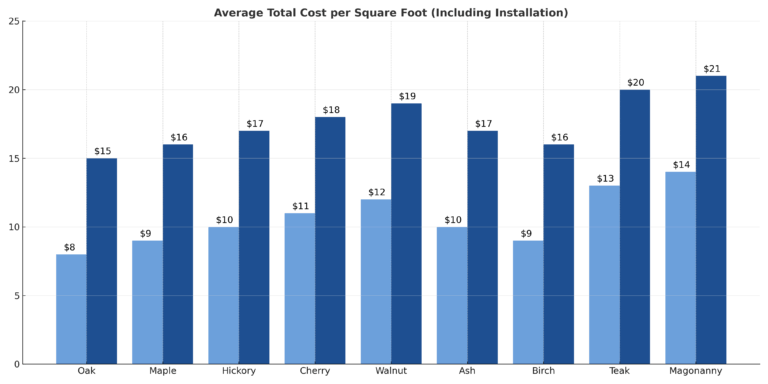
Labor: $4 to $8 per square foot
Labor costs can be 50% to 70% of the total price. Getting professionals to install hardwood floors makes sure they look perfect.
Labor costs usually cover putting in the flooring, getting the subfloor ready, and finishing touches.
Installation
Installing hardwood floors needs skill for a smooth look. Skilled workers might charge $4 to $8 per square foot for labor, based on project difficulty and local rates.
Finishing
Labor might also include finishing services like sanding, staining, and sealing the floors. These steps improve how the floors look and last, keeping them beautiful for a long time.
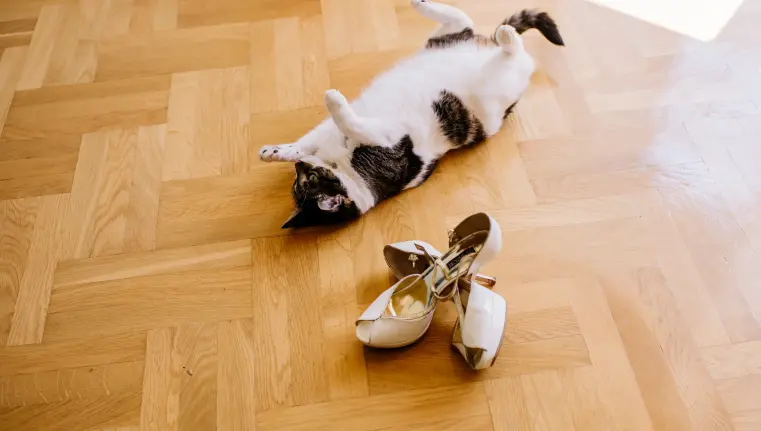
Subfloor Preparation: $1 to $2 per square foot
Getting the subfloor ready is important for making hardwood floors last long. This can mean making surfaces even, fixing subfloor damage, and adding moisture barriers.
Leveling
If the subfloor is uneven or damaged, it might need leveling for a smooth hardwood floor. Leveling usually costs $1 to $2 for each square foot, based on the work needed.
Moisture Protection
Moisture can harm hardwood floors, so adding a moisture barrier is key, especially in damp areas. Moisture barrier costs are usually $1 to $2 per square foot.
Removal of Existing Flooring: $1 to $3 per square foot
To install new hardwood floors, old materials like carpet, tile, or laminate might need to be taken out. This makes sure the surface is clean and even for the new hardwood.
Carpet Removal
Taking out carpet usually costs $1 to $2 per square foot, based on the carpet type and if there’s padding underneath.
Tile or Laminate Removal
Removing tile or laminate could need extra work and tools, so costs are a bit higher, around $2 to $3 per square foot.
Summary of Hardwood Flooring Cost Breakdown:
- Carpet Removal: $1 – $2 per sq ft
- Tile/Laminate Removal: $2 – $3 per sq ft
- Leveling: $1 – $2 per sq ft
- Moisture Barrier: $1 – $2 per sq ft
- Installation Labor: $4 – $8 per sq ft
- Finishing Services: Usually included in installation or priced separately if using special stains/sealants
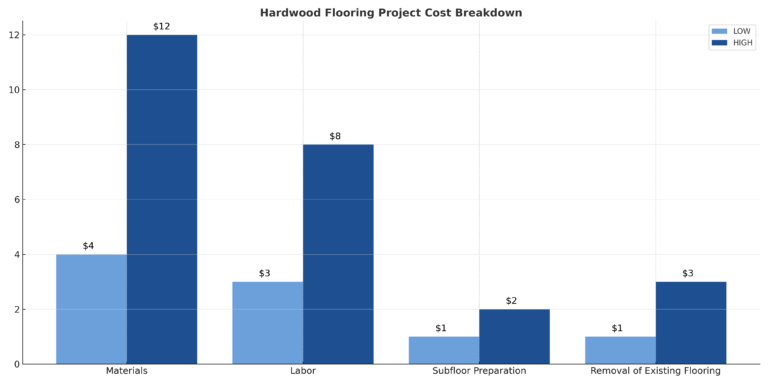
Solid Hardwood Flooring Installation
Solid hardwood flooring is known for being beautiful and strong. Installing it usually costs $11 to $25 per square foot, including materials and labor.
The cost varies based on wood type, installation complexity, and extra services needed.
Installation Method
How the flooring is installed affects the cost. Traditional nail-down installation is often cheaper than glue-down or floating installations.
Additional Services
Extra services can raise the total cost. These include:
- Subfloor preparation: leveling or repairing surfaces
- Moisture barrier installation: important for humid areas
- Staining and finishing: makes the floor look better and last longer, often charged separately
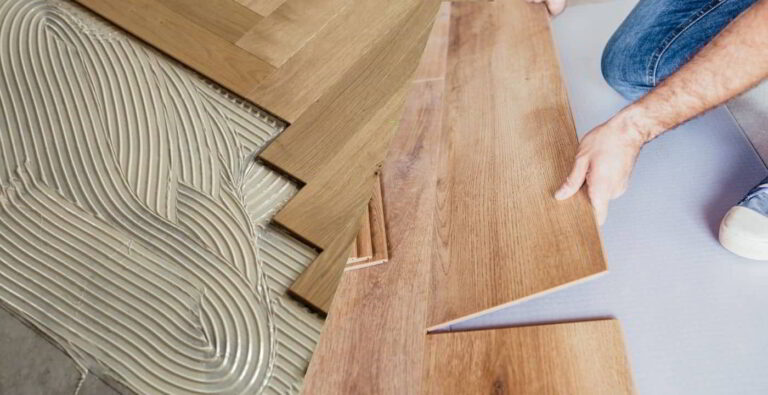
Engineered Hardwood Flooring Installation
Engineered hardwood flooring offers excellent durability and design flexibility, making it a top choice for many homeowners. Installation costs typically range from $7 to $20 per square foot, including materials and labor.
Higher-end options, such as exotic woods or thick veneers, will increase the total cost. The type of veneer and finish selected plays a role in both price and longevity.
Installation Method
The method used can affect your total investment:
- Floating floors are typically more affordable and easier to install.
- Glue-down or nail-down installations may cost more due to additional labor and materials.
- Complexities like radiant heating systems or uneven subfloors may result in extra charges.
Factors That Affect Hardwood Flooring Costs
| Cost Factor | Details |
|---|---|
| Wood Type | Prices vary by species. Exotic woods (e.g., Brazilian cherry) cost more than domestic varieties (e.g., oak, maple). |
| Wood Quality | Engineered hardwood is generally more budget-friendly than solid hardwood, while still offering similar appearance and performance. |
| Installation Method | Floating floors are often less expensive to install than glue-down or nail-down options. |
| Room Size | Larger rooms require more material and labor, leading to higher total costs. |
| Subfloor Condition | Subfloor repairs, leveling, or moisture protection measures will increase your overall costs. |
| Additional Features | Borders, inlays, or custom designs can significantly raise the price. |
| Additional Services | These may include removing old flooring, subfloor work, or installing baseboards or underlayment. |
Professional vs DIY Flooring Installation
When installing hardwood flooring, homeowners often choose between hiring professionals and taking on a DIY project. Each approach has pros and cons depending on your budget, timeline, and comfort level with tools and precision work.
Professional Installation
Advantages
- Expertise: Skilled professionals ensure accurate measurements, plank alignment, and finishing techniques.
- Efficiency: Installers work quickly using the right tools, minimizing errors and delays.
- Warranty: Most professional installations come with a labor warranty or guarantee.
- Flawless Finish: Includes sanding, staining, and sealing for a polished look.
Drawbacks
- Cost: Hiring a pro increases the total project cost due to labor fees.
DIY Installation
Advantages
- Cost Savings: Eliminate labor fees, ideal for small projects or tight budgets.
- Flexible Timing: Work at your own pace and schedule.
- Skill Building: Learn and develop new home improvement skills.
Drawbacks
- Quality Risks: Mistakes like misaligned planks or uneven seams can affect the final look.
- Physically Demanding: Requires strength, patience, and prolonged periods of kneeling or lifting.
Ready to Turn Your Hardwood Flooring Vision Into Reality?
Choosing the right hardwood flooring is a big decision. Now that you understand the key cost factors, you’re one step closer to creating the perfect space. But you don’t have to navigate the process alone.
We’d love to help guide you through the world of hardwood flooring in a free consultation with one of our flooring installation experts. From selecting the ideal wood type to understanding installation methods and budgeting, our team is here to make sure you get floors you’ll love for years to come.
Contact us today to schedule your free in-home flooring consultation and see if we serve your area.
